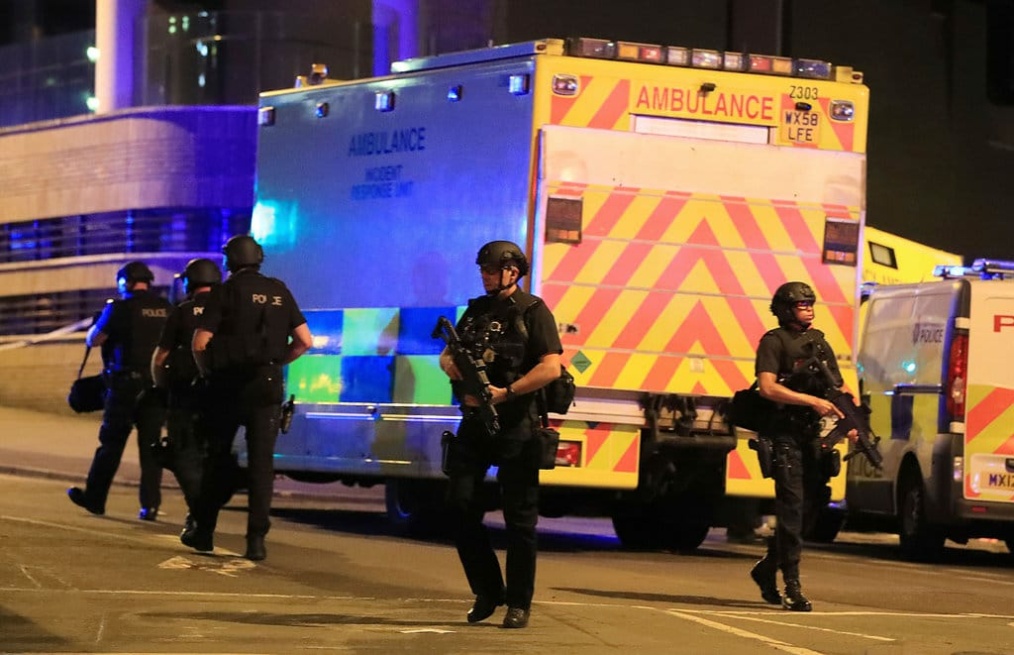
The State of Terrorism in the United Kingdom
Terrorism within the United Kingdom, over the past decade, has encountered many critical threats that have challenged its security. While the island nation is not unique in the threats it faces, it serves as a useful case study to analyze upcoming trends affecting its allies for the foreseeable future. By doing so, the United Kingdom and its allies can better understand emerging challenges and better support transatlantic security. To complete this aim, policymakers must investigate the history of terrorism within the United Kingdom and newer hazards to British society.
Challenges of the 20th Century
In the 20th century, one of the United Kingdom’s greatest threats was insecurity derived from Irish separatism threatening its territorial integrity. One of the earliest incidents of this insecurity occurred over a century ago during the Easter Rising of 1916. During this event, a coalition of Irish groups hoped to demand greater autonomy for Ireland while the United Kingdom was preoccupied with fighting the First World War. Although initially taken aback, British forces overwhelmed those involved in the rising. When the dust had settled, hundreds had died from the fighting and the event leaders were sentenced to death.
The Easter Rising would be a pivotal moment in Irish political history because it drew the Irish public’s support for their cause. Consequently, the rising would also inspire future generations of Irish separatists to use violence for a united Ireland.
The most infamous terrorist group which the Easter Rising would inspire was the Irish Republican Army (IRA). The group traces its heritage to the first organization to hold that name which fought the British Army during 1919. Ireland would be partitioned two years later and serve as a backdrop for the worst fighting between the IRA and loyalist paramilitary groups.
The IRA truly became infamous during the period known as the Troubles, which lasted from the 1960s to the 1990s. The sectarian violence claimed the lives of thousands and ended in signing the Good Friday Agreement in 1998. The agreement created several integral institutions such as the Northern Ireland Assembly providing lasting peace in Northern Ireland.
Critical Threats in the 21st Century
In the new millennium, the United Kingdom’s primary threat to their national security stemmed not from Irish separatism but from Islamic extremism. This was made clear after the July 7th London bombings which killed 52 civilians. For much of the 2000s, al-Qaeda was the group responsible for either perpetrating or inspiring attacks in the United Kingdom. However, this changed with the rise of ISIS, which grew in capability and resources to inspire attacks. By the end of the 2010s, ISIS garnered attention with the 2017 Manchester bombing.
During 2022, the United Kingdom still faces an acute threat from Islamic extremism, but it also faces a rising challenge from right-wing extremism. In January 2022, a 17-year-old in the United Kingdom was arrested on suspicion of wanting to commit violence against members of the Muslim community and kill thousands of others. The head of MI5, Ken McCallum, stated that his agency is seeing young teenagers radicalized through the internet.
Policy for the Future
While the rise in right-wing extremism is not exclusive to the United Kingdom, it must understand the conditions causing this rise. In the present century, there has been a proliferation of technology designed to create a global public square and enable democratization of knowledge. Instead, the generations who have grown up with this technology have become increasingly isolated and have fewer friends than previous generations.
Many individuals have scoured the internet in search of companionship and comradery but instead are preyed upon by extremist groups who have grown in capacity to do so. Furthermore, the country which they find themselves in is also expected to become more ethnically diverse over the coming decades. Such conditions have compounded to create an environment rife for British youth to be wrangled into right-wing extremism.
To combat such developments, the United Kingdom should institute initiatives to alleviate the isolation which their youth face. The United Kingdom should also bolster its security through increased engagement in Northern Ireland and its domestic Muslim community; both areas could become sources of unrest. Brexit and the increased capacity for ISIS recruitment efforts following the withdrawal from Afghanistan are both sources of increased unrest.
Moreover, they should also bolster their cybersecurity capabilities as competition will intensify in the coming decades. The United Kingdom will be subject to attempted penetrations in cyberspace by foreign governments to ascertain sensitive information. Should they back a harder line on authoritarian governments, there will also be efforts to weaken their resolve to do so. By taking initiative, the United Kingdom can be prepared for the upcoming years that will certainly present a challenge to their security.
Christopher Ynclan Jr., Counter-Terrorism Research Fellow
